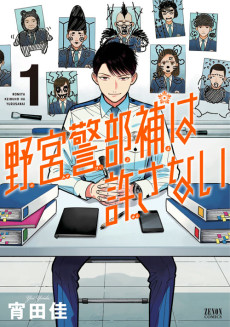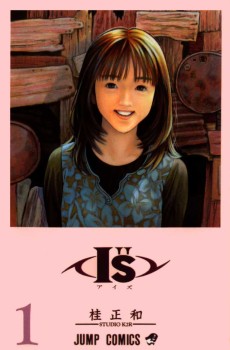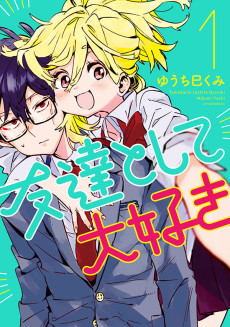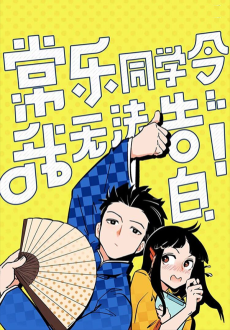YUGAMI-KUN NI WA TOMODACHI GA INAI
STATUS
COMPLETE
VOLUMES
16
RELEASE
May 22, 2019
CHAPTERS
81
DESCRIPTION
The story of the comedy manga revolves around Yuuji Yugami and Chihiro Watanuki, who sit next to each other in class. Unfortunately for Chihiro the transfer student, Yuuji is weird... extremely weird. Even though he's the ace of the baseball club, he hasn't adapted to the club at all. He also stands apart from the rest of the class, but seems completely satisfied with being alone.
(Source: Anime News Network)
CAST
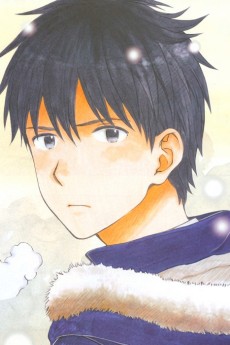
Yuuji Yugami

Chihiro Watanuki
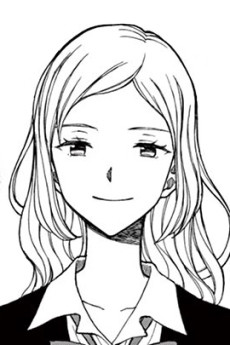
Rio Fujisawa
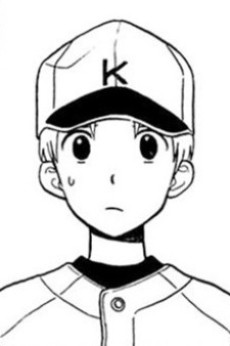
Haruki Kadota
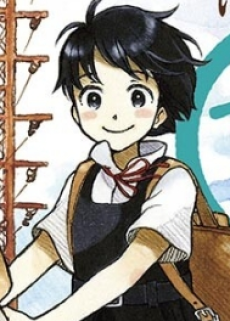
Yuuko Yugami
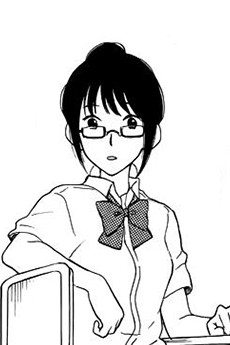
Wakana Kuzumi
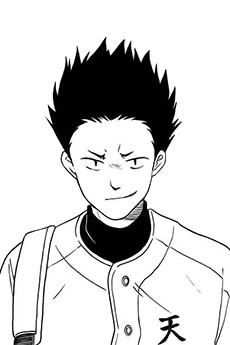
Masaki Hayashiyama
CHAPTERS
RELATED TO YUGAMI-KUN NI WA TOMODACHI GA INAI
REVIEWS

saulgoodman
100/100Yugami-kun is an exemplar school comedy and a golden renewal of my love for the manga mediumContinue on AniListIf you were to ask me what I think is the most arduous task is for a mangaka, I'd answer with character relationships and dynamics. For character-driven stories, it's imperative to smoothly convey some sort of internal change in the characters. Whether it be their personality, goals, motives, relationships, etc. One common criticism I see for many different series relates to relationships and dynamics. Maybe a romantic relationship stagnated after a while, or never happened in the end after flurries of fan-service, or a character acted in an unnatural manner that broke character. And I'm no exception, character writing is perhaps the strongest element that will make or break any series for me. Of course, my expectations widely differs from series to series, genre to genre. Among my least strict regards the school comedy sub-genre. I mean, I'm certainly not expecting phenomenally introspective character writing in Azumanga Daioh or Daily Lives of High School Boys, right?
Yugami-kun ni wa Tomodachi ga Inai endearingly shattered my expectational hurdles for its genre. The adorably dull art style and consistently lighthearted atmosphere kept me miles width away from expecting by far my favorite character, relationship and dynamic writing in any manga I've read up to this point. Even though I was always someone who parroted the phrase "Don't judge a book by its cover", I did the same expecting a light 6/10 gag comedy, only to come out proclaiming this to be my favorite manga of all time.
SPOILERS AHEAD
He was a boy, she was a girl Yugami-kun ni wa Tomodachi ga Inai depicts a rather mundane premise: a transfer student named Watanuki Chihiro who interacts with an aloof loner named Yugami Yuuji. The first several chapters offers little more than this, mainly to establish the awkward start to their peculiar relationship. Chihiro has yet to adjust to her new school and acquaint herself with her classmates, and is stuck with the other loner, Yugami. Initially, I expected a gag story with a Manzai comedy style, consisting of Yugami saying and doing bewildering things, Chihiro reacting, rinse and repeat. It certainly seemed fitting considering Yugami's enigmatic nature and dogmatic philosophy & Chihiro's rather plain, neutral character. Though I was somewhat right about the comedy, the dynamics of both their characters came as pleasant surprises.
The story is largely carried by two things I believe to be among the most difficult to execute well; ambiguity and subtlety. The ambiguity derives mostly from Yugami's character and his relationship with Chihiro. Are they simply classmates? Friends? Fellow loners? Whatever it may be, the story takes its sweet time in developing and making Yugami and Chihiro's .... whatever-ship into the main highlight of the series. More on Yugami's ambiguity later. The subtlety coincides with the ambiguity well, with Yugami and Chihiro's relationship evolving with sneakingly small, yet satisfying nuanced steps. For quite a few other school comedy series I've read, character relationships often explode in development at the start to hook the audience in (Ex: Normal guy discovers the school idol's secret and builds an intimate relationship with her), then stagnate for the majority of the series due to recycling comedic gags, occasionally sprinkled with dull relationship progression. However, this series doesn't immediately reel us in with sporadic, huge development dumps, it steadily fosters the two's relationship and rarely shows any gap or break in its evolution.
Another refreshing aspect I found was the series' lack of cliches. Being a culmination of the school, comedy and sports genres, I was surprised that the typical cliches found in the respective genres were rarely played out. And if they were, they broke the superficial nature of the trope as simply redundant comedy and story writing, but as refreshing elevations of the characters.
Perhaps the series sounds like a melodramatic slice-of-life from what I've described so far, but Yugami-kun ni wa Tomodachi is additionally a phenomenal situational comedy. The comedy largely relies on the dialogue and interactions between various characters, but none more profound and amusing than Yugami's. Supplemented by the consistently lighthearted tone, the conflicts are almost always smirk-inducing. A strong driving force behind it is its trope subversion. I think subversive comedy can be dull after a while, once the audience has experienced the usual pattern of the expected build-up to be met with a jebait moment, but this series executes it without losing taste. There's no real build up to these subversive moments, making the jebait subversion much more "in your face".
The fireworks muffling the confession
Had the story featured only Yugami and Chihiro, the series would've been a stagnating cesspool. But because Sakura Jun wrote other characters with as much detailed writing as our main protagonists and others with roles extremely relevant to our protagonists' relationship and situations, it became an outstanding character-driven story. The other characters are often parallels to Yugami and Chihiro, in order to characterize the two further, but they're given their own distinct, enjoyable personalities in their dual interactions with the two.
All in all, I hope I conveyed my love for the story. Sakura Jun seamlessly strengthened an otherwise mundane premise with things I've always considered to be difficult to implement and execute in a consistently refreshing manner. Now I'll provide brief character analyses of both of our protagonists, then flesh them out further with important story arcs.
The Melancholy of Yuuji Yugami Hmm, where do I begin with the SCP creature known as Yugami? The social martyr for the angsty, cynical teen? A living paradox? An undaunted contrarian? In the simplest terms, Yugami is, well ... Yugami.
__Consideration__ It's extremely easy to wave off Yugami as an inconsiderate asshole. He makes blunt and harsh comments, has an aloof personality and the rancid rumors and reputation surrounding him characterize him as The Black Plague. However, there lies human consideration inside of him, too. Just unorthodox consideration. In simplest terms, imagine we all have social filters in our heads taking in inputs of someone's emotions, words and actions and outputs an appropriate response following social etiquette. Well, Yugami's social filter is just defective. He's often unable to empathize with socially-straining situations and conflicts, and coupled with his aloof and dogmatic personality, the solutions he offers are often views as inconsiderate.
But he does indeed take other people's feelings into account when his actions involve others. This is seen early on, when he excessively stresses over Rio's love letter to him. He spends days wracking his brain how to resolve this situation that'd appease both her and himself, but unfortunately arrives at humorously ridiculous solutions. In the end, however, he decides to uphold his honesty as the resolution.
__Not Bad, Not Good__ As previously mentioned, the ambiguity in this series is top-notch. And for the nature of Yugami's character, it's easily the strongest driving force behind what makes him so enjoyable.
Yugami's character is established by others and even by himself to be a self-fulfilling being who sees everything through a black-and-white frame of "doing this will be good for me" and "doing this will be bad for me". As such, it certainly paints him as a selfish, self-centered person who dismisses the consequences of his actions on others.
His actions and words are often harsh, brief and brutal. Because he often can't empathize with dire social situations since he simply doesn't care about them, he may offer little-to-no help. This is best seen with his one-sided communication with Chihiro, particularly in chapter 20. Because of Yugami's extreme tendency to associate with things he cares about and ignore all else that he doesn't, he often doesn't care about other people's issues but forces his issues onto others if it comes down to it, such as in the previously mentioned chapter. Such scenes do paint Yugami in a selfish light.
However, as the story progresses, the situations and conflicts Yugami faces gradually paints a different narrative of Yugami. The intentions behind his actions seem to become less self-centered and more empathetic. His mild reactions, silent and brief dialogue tends to show that he's thinking about something other than benefitting himself from a situation. Still, Yugami's seemingly inconsiderate actions and the self-centered reasons he gives behind his actions balance out this surprisingly empathetic side, making him out to be a interestingly lopsided guy.
What exactly fleshed out this ambiguity in Yugami's character is Chihiro. For him, Chihiro was initially nothing more than an object to project and reinforce his beliefs and a little more than a frustratingly naive puppy. The very first chapter already presented how Chihiro would become a catalyst for Yugami's ambiguity and dynamic when he defends Chihiro from their upperclassmen's wrath. Though this and many of the early situations largely illustrate Yugami's intentions in a one-sided, self-fulfilling manner, they becomes ambiguously considerate and wholesome as the story progresses. Even when Yugami states repaying his debts is a principle of his, his consideration shows through.
How Yugami creates a rakugo club for the lonely Chihiro

Chihiro Watanuki To offset the peculiar phenomenon known as Yugami, exists Chihiro Watanuki. The only person other than his family willing to freely associate with him, Chihiro becomes a catalyst and an irreplaceable presence in his life.
__I Walk a Lonely Road__ Chihiro is introduced as also a loner. A veteran transfer student who makes friends as quickly as she loses them. Thus, she disassociated herself, seeing that no long term friendships would ever to fruition. However, as the town Yugami lives in would become her permanent home, Chihiro switches gears and is determined to at last create unforgettable bonds with her new classmates.
However, the distance between her as a new student and her close-knit classmates combined with her fretful nature making her unwilling to initiate communication once again rendered Chihiro a loner. The only solace she had was both unfortunately and fortunately Yugami Yuuji. His influence had ironic effects on her. Merely associating with him swept Chihiro in the same black tarred category as Yugami, in the eyes of her peers, thus initially ostracizing her from everyone. However, in the various situations she found herself in thanks to Yugami, such as interacting with the baseball club, Chihiro started to interact with more and more people, eventually becoming friends. In a very strange way, Chihiro was helped out by Yugami early on, and their association became a heartwarming one.
__Reading the Mood = Kindness?__ A substantial, detrimental part of Chihiro's personality was her weakness to peer pressure. Early on, an important scene imperative to Chihiro's character was her clean-up duty. Perhaps something like taking over someone else's cleaning duties may be minuscule and mundane, but it expressed how Chihiro was desperate to have a good image of herself in the eyes of her new classmates, even if meant doing things she didn't want to. And the one who provided her some introspection was Yugami. While the depiction of Yugami lacking the skill to read the mood portrays him in an unflattering light, the depiction of Chihiro subservient to it portrays her as someone that'd let others step over her. And even though Chihiro continues to read the mood, she respects Yugami's rejection to follow this socially inherent rule.
__A Friend of a Friend Isn't a Friend__ Another substantial part of Chihiro's character was the tense dynamics of her circle. Thanks to Yugami, Chihiro became friends with Waka, manager of the baseball club, and entered her circle of friends, consisting of another person and Waka's childhood friend. However, the group dynamics turned into a cold war for quite a while in the story and depicts an interesting, even realistic, conflict.
Kaori, Waka's childhood friend, dislike and ostracizes Chihiro from their group for some reason unbeknownst to Chihiro. But with her fretful nature and unwillingness to confront and initiate, Chihiro ends up at an awkward, tense standstill with her. With both parties unwilling to properly communicate, misunderstandings and Chihiro's stress build up over the course of the story. Even when Chihiro tries to appease Kaori with niceties, she's ignored and still given the cold shoulder. And because she doesn't want to depend on Waka too much, something Kaori herself says she finds annoying about Chihiro, Chihiro only depends on herself to resolve this situation.
Though it's eventually resolved all fine and dandy, this conflict dually depicts how reading the mood isn't a one-fits-all solution, and proper, straight-forward communication is necessary.
And now to begin the lengthy examination of the saga of their relationship progression
Yugami-kun vs Wakanuki-san The first dramatic turning point in Yugami and Chihiro’s relationship. Up until this point, their relationship was rather lopsided. Yugami helped out Chihiro for some odd reason, indulged her with his rakugo or miscellaneous rants and they irregularly interacted. In short, some twisted form of acquaintanceship with one-sided communication? But for once, Chihiro actually self-asserts herself in their relationship.
Chihiro overhears Kaori complaining that Chihiro stresses out Waka with her association with Yugami. Chihiro, insecure about her lack of objectivity, wants Yugami to hear her out and offer advice. He refuses, as it will involve him in a complicated mess. Simultaneously, Yugami is stressed out from Heitarou’s bad rakugo performance and wants to hear Chihiro's opinions about it to reaffirm his own. And in turn, she refuses, as she’s stressed out from her own situation. Agreeing to compromise by hearing each other out, Yugami continues to one-sidedly dominate the conversation for his own sake. Chihro, snapping from all the accumulated stress, finally self-asserts her position in their relationship and berates him for not being objective when he rants and defends Heitarou, and that he ignores others but wants to be listened to.
Up until this point, Yugami was criticized solely through the words and rumors of those who rarely interacted with him, but Chihiro, someone who regularly does, finally makes a valid criticism of his character; his hypocrisy. The objectivity that he's so proud of is shallow and narrow-minded, blinded by his own dogmatic nature, he's just as subjective as those who talk ill of him. And once hit with this criticism, Yugami for the first realizes he's flawed. And that he could learn something from others, instead of living in his own echo chamber. Though Yugami continues to one-sidedly dominate their conversations, it marked the first time that Yugami began to consider other people's words and principles. Not necessarily adapt them, but accept that his own thoughts aren't the only valid ones.

Yugami-kun Induces Tears and Stumbles Upon Yugami and Chihiro’s ambiguous relationship is finally put to the test and examined clearly. Though we know what Yugami is to Chihiro, someone who she wants to befriend, what is Chihiro to Yugami?
After seeing that Yugami made Nogami cry, Chihiro exclaims that she’s “cutting” him off. To Yugami’s dismay, as he believes they weren’t even close enough to sever ties. As things go on, though, Chihiro becomes more distressed over this while Yugami is seemingly unaffected.
For Chihiro, this situation is extremely vexing and distressing. She’s always worried over the nuances and tensions in her relationships, and an ambiguous relationship with someone like Yugami causes her the most worry. For Yugami, he expectantly continues his life nonchalantly. However, it’s plausible that he’s indeed affected. He comments on broken ties being irreparable and his strange habits may be caused by the break off. In the end, he believes there was never any tension between them to begin with, suggesting that he thinks they already had good ties and that Chihiro is important to him. And in the end, Chihiro apologizes through a text, with Yugami simply replying with two words; "Got it."
The seemingly flat, anti-climactic resolution, being the text conversation, is perfectly fitting. There’s always been an ambiguous air to their relationship, and an indirect form of communication like texting compliments the implicit, growing nuances of their relationship. For Yugami and Chihiro, they don’t need a cliche, dramatic scene. This resolution perfectly complements the dual nature of their relationship, one of ambiguity and indirectness, and another of understanding and budding importance of each other.

Will Watanuki-san Change? Compared to the usual nuanced, subtleness of their relationship, Chihiro explicitly expressed her feelings about Yugami in the most heartfelt, genuine and gorgeous confession scene I've read, that makes it transparent how far their relationship has progressed.
After hitting a no-hitter game, Yugami gains immense popularity. Though usually a person who ignores others, he starts to feel pressure from popularity, with everyone treating him differently. And Chihiro feels happy that everyone’s seeing Yugami in a positive light now, yet lonely that the distance between them may increase. Though, Yugami proclaims that he’ll never change to her right after. Kaori, who wants to date Yugami to leech his popularity, haughtily makes Chihiro write a “love letter” to Yugami. Unsure what to say, since she still isn't aware of what exactly their relationship, Chihiro reflects on all her experiences with Yugami.
Chihiro and Yugami's relationship can easily be misinterpreted as stagnant and turtle-paced. 14 volumes in, and Chihiro still isn't aware of what her connection with Yugami is. Their interactions are patterned, with Yugami's one-sided rants and Yugami unintentionally helping her out. Perhaps their interactions haven't evolved dramatically, but words speak louder than actions.
Whenever Chihiro is downtrodden, Yugami offers her his sarcastic, peculiar pearls of wisdom. But in a way, they encourage her. And in occasions when Yugami is unable to find a solution by himself, Chihiro's words may offer alternatives. Ultimately, their relationship revolves around indirectness and subtlety. Just like how their relationship was "restored" with mere phone texts, this letter that Chihiro doesn't even show Yugami further reveals the dynamic of their relationship; beautifully implicit and understanding even if words aren't spoken.

Watanuki Chihiro Ponders the Question After 15 volumes, Chihiro finally establishes her relationship to Yugami; her friend.
Yugami leaves the cultural festival's after-party swiftly, satisfied with visiting all the attractions and booths in the festival and even complimented Chihiro's puppet show. However, their class again speaks ill of Yugami, more harshly than usual, for being unable to read the mood.
The start of the chapter references Chihiro's cleaning duty situation back in Chapter 18, where Yugami sarcastically asks her if she enjoys cleaning. Chihiro lacked the confidence to reject requests, submitting to the will of "reading the mood". And now, Chihiro has a dream about it, but now instead Yugami is the one cleaning up. And in this case, he doesn't read the mood, earning him criticism from his class mates for failing to do so. This serves as a premonition later on in the chapter, when everyone criticizes Yugami for not reading the mood once again.
But this time around, Chihiro actually speaks out. Even though she's the only one willing to stand her ground against the entire class, she defends her friend and opposes the hive-mind.
Going from a person who lacked initiative and confidence to someone berating the majority, signifies the positive extent that Yugami has had on her over the course of the story.


Watanuki Chihiro Has Friends But what does Yugami think of their relationship? Well...
Unlike the times where Yugami rejects Chihiro's offer of friendship at the start of the story and Chihiro "cutting off" Yugami when their relationship was still up in the air, this strain in their relationship is much more tense. Chihiro asserted Yugami as her friend now, so she feels crushed that her feelings aren't mutual. And awkwardness and tension causes a rift between the two.
However, Chihiro and Yugami still find themselves thinking about each other. All the people she's met and memories she's gained were indirectly due to Yugami, and even if Yugami doesn't see her as a friend through out all of their experiences, what he's done for her is more than enough.
At the end, however, Yugami's surprisingly the one to end the stand still, once again restoring their relationship.

Yugami-kun Graduates Yugami, elected student representative for the graduating year, reads his graduation speech, conveying his usual aloof philosophical rants, but goes on to encourage everyone’s he’s met. From Chihiro to Rio to Yaegeshi to Kaori to Kadota, etc, from all the observations he’s made of them and their conflicts over the past 2 years. Yugami simultaneously disregards companionship and encourages others to love themselves.
This chapter more than any other illustrates the beauty of Yugami's character. His principles were never compromised for the sake of plot or relationship progression, making up the core of his character. But, thanks to Chihiro's presence and all the people he's interacted with, Yugami's realized the values of other people's principles. And in this conclusion, he simultaneously encourages them and reaffirms his own principles. To the very end, Yugami doesn't need friends. But he learns that there's value in other people's pursuits of goals different to his.
Afterwards, Chihiro runs after Yugami, but doesn’t know what to say, except a simple "thank you". For all the unforgettable experiences and friends she's made thanks to the catalyst known as Yugami Yuuji. And Yugami, who never understood implicit meanings behind social conventions and would always furiously question people intentions, simply smiles back, signifying he understands everything Chihiro wanted to convey.

Conclusion Character dynamic and relationships can often be a tricky task for many mangaka to undertake. And by miles, Yugami-kun ni wa Tomodachi ga Inai ranks among the top with its exceptional writing of Yugami and Chihiro's ambiguously wholesome relationship. Sakura Jun never cheapened the value of their relationship with repetitive tropes, stagnating drama or listless gags. This otherwise plain premise of two students interacting is deeply enriched with its phenomenal situational comedy, short but impactful story arcs, enjoyable side characters and the consistent pace. My dulled expectations coming into this story were blown out of the waters, earning the enthronement as my favorite manga. And any other school, slice-of-life comedy fan will surely be left mesmerized by the peculiar phenomenon known as Yugami Yuuji.


Douzeries
83/100YOU should read Yuugami-kun doesn't have any friendsContinue on AniListIt's the dumb slice of life manga you didn't know you needed and the best slice of life manga you haven't heard of.
Yugami-kun doesn't have any friends. I'm sure most of us here have gone trough a period where we were a bit outcast in some way. So I'm sure all of you had the same reaction as me when reading the title -> "Sounds a bit relatable....Interesting."
Though it'd give valuable messages about friendship and heartwarming scenes, you'd think it would be more oriented to people without friends or at least socially uncomfortable people because it'd try to fill the loneliness of it's reader with entertainment and hope by showing a lonely guy getting friends through effort and courage. Well it is nothing of the sort.This manga is nothing palliative.
THIS MANGA DOESN'T TRICK YOU IT LOVES YOU
Though I'm a fan, what I hate about a lot slice of life animanga is that they're purely palliative. It doesn't actually encourage you to be or do any better, it just shows you characters having the time or their lives instead of you. You watch the former loner mc living his best life so you don't have to, it's contradictory because these type of animanga should or were meant to make you try to enjoy life and it ends up being an self insert show where you fantasize about having that dreamy life that the mc has. Since it doesn't cure you to the core, it only heals you, you feel like there's no need to be cured so you're satisfied with the healing but the healing was originally supposed to cure you?... I don't know if I'm being very clear but I hope you get it.
Now I'm not totally blaming the animanga industry, even though some of em animanga undeniably use it's viewers loneliness to put them in the slice of life hole, sometimes it's just the viewers who ignore the message and go for a self-satisfaction reading session.Now what I want to go with this is that if you think this manga is about a random lonely mc gradually making more and more friends to make you realize : if he can you can. You'd be DEAD wrong
THE MESSAGE & STRONG POINTS

This absolutely goated chad doesn't have friends because he doesn't want them.
Now you might think that it's a self-defense thing, where he acts tough as the only saving for his ego for being an outcasted, kinda like Hikigiya Hachiman from Oregairu, well you'd be dead wrong too. He literally doesn't need them.
Might have scared you away before with that serious stuff but do not worry, this manga isn't complex AT ALL. In fact, it is excessively stupid and silly. The humor is omnipresent and the story is self deprecating. Now does that means that the manga is for braindeads and that it's never serious ? No, it's somewhat deep and give valuable messages about society and relationships. Now, I'm not gonna lie, if you've watched or read many slice of life animanga and has been around anime for a while it's nothing groundbreaking. I think where this manga stand out from others is at it's core message
Yugami-sama doesn't want and doesn't need friends. Don't take it falsely, the point of the story isn't to minimize relationships importance or to convince you not to make friends. Chadgami doesn't reject social interactions, he rejects the idea of a friend. Gonna keep it short but what is a friend? You've probably had very superficial relationships, and many of us just make friendship for convenience. Not to be alone in a new class, for social acceptance, inclusion, self satisfaction, even for money and a shoulder to cry onto. I'm not trying to make you think friendships are bad because it goes against all my convictions and it's literally necessary for a human to have relationships but the word friend implies a lot of things.
True homies do anything for their homies but it can lead you to consistently do things you don't want to for people who don't deserve it. You never know what's in another person's heart, you can begin to feel a strong connection toward someone but this person doesn't think of you as important. In some cases they just befriend you for benefits just like you start relationships for selfish reasons. Always trying to fit in and being obsessed with trying to have friends can lead you to basically become a mob , hiding your real personality to be easily-liked and accepting everything because you don't want to upset anyone.Yugami kun doesn't need any of that. It may seems like a cowardly "too much of a handful to bother" mindset but I don't see it as that. He actually takes courage not to depend on others. He's not a lazy defeatist person, he's an hardworker. All this time spend on himself allowed him to know and love himself. He does sports, studies, enlarge his knowledge, make experiences. His no-friends mindset isn't an excuse not to try anything, it's an opportunity to become a better individual everyday. He's always true to himself. He's my model honestly. His nameless relationships may be more valuable than the fake friendships people have. His character is so interesting, you never know why he does the things he does, how he became like that and if he's just a self centered asshole or an altruist guy. I have no idea how the author made any character somewhat interesting with that chad as the mc. You'd think he drives the f*ck outta the plot but again you'd be wrong. Every character and plotline is important and he doesn't influence everything and many would actually argue that the main character isn't even him lmao.
CONCLUSION
I've talked a lot about the substance but the form is neat too. The drawings only get better every chapter and they're actually hilarious. The plot twists, pacing, characters developments and such are decent to good and solid. This is definitely worth reading! I'm not promising you a flawless masterpiece with a complex story but I'm promising you a fun and entertaining story with a somewhat original message. It's simplicity is it's charm.Many slice of life animanga entertained me but few made me want to be a better person and god 3 full days passed since I've finished this and I still have that 3am turning my life around rush

0711jz
80/100“Yugami-kun doesn’t have any friends—but he is a friend to me.”Continue on AniList
This review contains light spoilers (mainly about the direction of the story and characters), but should be safe to read for those not looking to go in completely blind.

There's a lot of manga nowadays fixated on the idea of the lonely loner: characters that wear a standoffish loner persona as a guise to hide their inner loneliness and desire for companionship. And don't get me wrong, this is a great concept, and I love some of the series that tackle it (e.g., Oregairu). But I wanted to find a series that depicted a true loner: somebody who legitimately enjoys being alone, relishing and even preferring their own company over the company of others. Not unhealthily or negatively, but someone who has confidence and their own hobbies and simply finds joy being by themself.
That’s what drew me to Yugami-kun. I saw a few obscure recommendations for it, and randomly decided to pick it up to pass the time. My expectations were not super high—I expected a fun (and maybe a little dull) school comedy. And that’s what it was to me for a while. But as I kept reading, my opinion of this series kept rising and rising and before I knew it, I was super invested in these characters and their relationships.
To put it simply, this is an exemplary school comedy. It’s not overly funny, nor is there any crazy romance or incredible drama or beautiful art; it’s just regular old slice-of-life at its best, showcasing its lovable cast of characters living their lives, deepening their bonds, and—slowly but surely—growing as people.
Yugami and Chihiro's Relationship
The main draw of this manga are the two leads and their relationship with one another. Watanuki Chihiro is a newly arrived transfer student who, thanks to constantly moving, gave up on making friends. But now, she’s done transferring and wants to establish herself and befriend her classmates. Unfortunately, she arrived in the middle of their second year of high school, so she finds it hard to insert herself into an already established friend group. Combine that with her blatant lack of assertiveness, and she unwillingly becomes a recluse relegated to a lonely school life. And it doesn’t help that her deskmate, Yugami Yuuji, is an eccentric and dogmatic loner isolated from his class.
Thanks to a load of idle chatter, shared experiences, and chance coincidences, Yugami and Chihiro’s relationship gradually blossoms into something beautiful. They are polar opposites—one desires companionship, and one actively avoids it—yet they are uniquely drawn to each other. They’re not quite friends and definitely not lovers, but they both eventually become irreplaceable constants in each other’s lives. It’s an ambiguous relationship that cannot and should not be defined in words, one that doesn’t need romance to be profound or powerful. It’s a relationship that subtly grows and changes over the series, so nuanced and indeterminate that neither character could fully define it. And let me just say, this type of relationship is extremely rare to come by and very emotionally fulfilling; it’s honestly one of my favorite platonic relationships in all animanga.
As their relationship evolves, so too do the characters. And that’s thanks to their respective positive influences on each other: Chihiro inherits part of Yugami’s assertiveness and confidence, while Yugami learns about consideration and how to better deal with those around him. Yet despite this fact, they fundamentally remain who they are, coming to mutually respect and understand each other and their vastly different lifestyles.
Watanuki Chihiro
Chihiro originally struggled to make friends, acting as a people-pleaser out of fear of being hated, rejected, or ostracized. She’s the type of person to let others step all over her if it means she can feel included, like she’s part of the group. But as the series progresses—and in no small part thanks to Yugami's crudely accurate advice—she learns to value and stand up for herself, finding a place to belong, friends of her own, and even a kouhai to guide. Her evolution from a timid girl desperate for friends to a confident senpai with a place to call her own—someone who tries to help those in similarly lonely situations to her old self—is legitimately incredible. You can even see this development in the lovely chapter covers, where Chihiro exudes such confidence and self-assurance in the later covers.

It's also in large part thanks to Yugami that Chihiro is in her current situation. Not just because of his blunt advice: his sheer indifference to those around him—specifically his ignorance of societal norms and nonchalance to the opinions of others—inspires Chihiro, who is constantly weighed down by these hindrances. And she beautifully expresses this sentiment in her fantastic letter in chapter 69, which is likely my favorite scene and the moment that completely sold me on this series. Furthermore, it's through interacting with Yugami and hanging out with the baseball club that she even met her current friends: her best friend is a girl from another class she met through Yugami, and it's the baseball team's manager (who she also met through Yugami, the ace of the team) that essentially adopts Chihiro into her friend group.
Yugami Yuuji
Yugami, unlike Chihiro, doesn’t noticeably change nearly as much. He appears to be the same at the beginning and end of the story; however, that's far from the truth. Yugami, both at the beginning and end of the series, has always put himself above others: he proudly proclaims his disinterest in friendship, citing it as a waste of mental resources. All he cares about is his own personal enjoyment, blindly ignoring what others think of him or how they treat him. But he’s not selfish. Sure, he may be extremely self-centered, but he actually does occasionally think about and try to help those around him. When he receives a love letter, he stresses over it for days trying to figure out the best way to resolve the situation for both parties. And though the conclusions he comes to are pretty abysmal, his heart is (and has always been) in the right place.

He may seem harsh and inconsiderate from the outside, but once you get to know him (as Chihiro does) you learn that his actions come from a place of goodwill. He sounds mean and critical, but he’s only expressing his honest opinion in an attempt to help out. His perspective—as one not tied down by friends or negative atmospheres or social constraints—can honestly be quite helpful: things appear obvious to him that might not stand out to those who follow normal social conventions or are in the thick of it. He’s an extremely logical person and an outsider, one who (often harshly) expresses his unique opinions to try and assist those around him. And once you realize that, it’s clear to see he’s not a bad guy.
As the series progresses, Yugami comes to learn about (some of) the nuances in human expression. At the start of the series, he had a distinct lack of understanding when it came to social cues or the intentions of others; he finds it difficult to pick up on subtle hints or comprehend the actions of those around him, since he has never had (or wanted) friends. But over the course of his high school life, Yugami comes to understand many of the implicit meanings behind short phrases or smiles, and it’s actually so lovely to see. The core of his character remains unchanged: he’s still the same self-centered person as he was at the beginning of the series, really only thinking of and living for himself. Yet it’s clear to see how much he’s grown when compared to the Yugami of the past.
Yugami’s development is primarily thanks to Chihiro’s influence. She’s the one who made him realize that his outlook and ideas aren’t the only correct ones (and can even be wrong!), which marked the turning point for his consideration of others’ words, actions, and principles. He’s the type of person who’s confident he understands himself, and if there’s something he doesn’t know about himself, he won’t hesitate to think about it for hours to arrive at an answer. And over the course of the series, he is forced to do this many times, coming to realize many more small things about himself and others that serve to gradually advance his character.

It’s not just the two leads that are well-written or entertaining. Their characters and relationship are by far the draw of the manga, but the side characters are also entertaining, well-written, and have their own small developments. But the series never excessively concentrates on them, well-aware that the two leads are the most interesting and entertaining. In this regard, the author is really good at balancing focus on the main and side characters, switching between the two to keep readers entertained and ensure the series stays fresh.
Yugami-kun isn’t exceptionally funny, but the character dynamics are very entertaining, and the series deftly plays with readers’ expectations by subverting established tropes and avoiding common cliches. Yugami-kun may not often have me laughing out loud, but its lighthearted character dynamics are always entertaining to read, and Yugami’s hilariously bizarre behavior occasionally elicits some laughs from me. Furthermore, the author avoids pretty much all the classic cliches associated with high-school manga and even plays with common tropes. Sometimes, it may look like a crazy love confession is about to happen, or that Yugami is about to say something extremely profound or emotional, but it’s abruptly revealed to just be another one of Yugami’s eccentricities (and/or a hilarious misunderstanding on Chihiro’s part).

A funny play on classic confession tropes These next two paragraphs contain spoilers for the ending of the series.
I really respect that Jun Sakura didn't feel pressured to stuff Yugami and Chihiro's relationship into a label. She didn't conform to desires to provide certainty or clarity into their relationship, even by the end of the series. Despite actively seeking her out to watch rakugo together (as shown in the final omake), Yugami still doesn't consciously consider Chihiro a friend. And that's okay: Chihiro has accepted that that is who Yugami is and who he will always be, and she is more than grateful for his assistance over the years and just being able to spend time with him. Though it's pretty clear to see that Yugami is at least treating her like a friend, actively going out of his way to watch rakugo together (and even paying for her tickets!).
As evidenced by Yugami's further invitations (despite already accomplishing his goal), they will continue to spend time together in the future. And since their relationship is constantly evolving, who knows what will happen to it. Maybe it will be romantic, or maybe Yugami will finally reevaluate his opinion on not needing friends after realizing how he treats Chihiro. Either way, it's clear they both want to spend time with each other, and the ending is a wonderful conclusion to the series: Yugami and Chihiro's story is far from over, but they've both come so far and will surely keep growing as they continue to see (and positively influence) each other. What more could I ever ask for?
Yugami-kun completely shattered my expectations. The somewhat bland art and the series’ lack of attention wrongly convinced me that this would just be yet another high school romcom, but this series is so much more than that. I could probably count on one or two hands the number of profoundly moving moments in this manga, yet each time one comes around it utterly amazes me. I’m not usually personally impacted by the media I consume, but this manga was dangerously close to reaching that level: I found Chihiro’s journey to be extremely inspiring, and the way their relationship develops—as well as some of the heartfelt things Yugami and Chihiro say (such as the letter, Yugami’s speech, etc)—were extremely touching and completely blew me away. I'm still feeling empty just thinking about this fantastic series, and I can tell my opinion of it will only grow as time goes on and it fully skins in. Because of that, I can’t suggest this manga enough if you’re looking for a lighthearted read with a lovable cast and subtle character development.

SIMILAR MANGAS YOU MAY LIKE
 MANGA ComedyTensai Family Company
MANGA ComedyTensai Family Company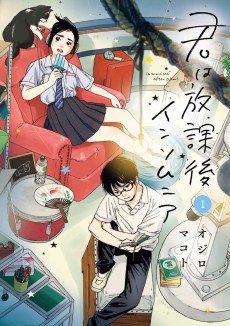 MANGA RomanceKimi wa Houkago Insomnia
MANGA RomanceKimi wa Houkago Insomnia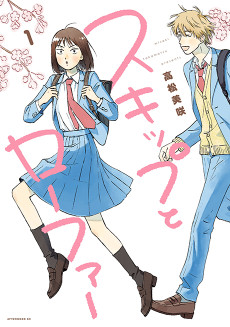 MANGA ComedySkip to Loafer
MANGA ComedySkip to Loafer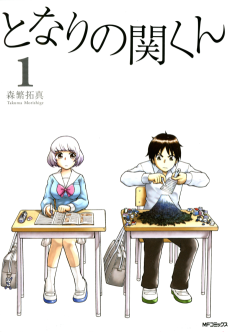 MANGA ComedyTonari no Seki-kun
MANGA ComedyTonari no Seki-kun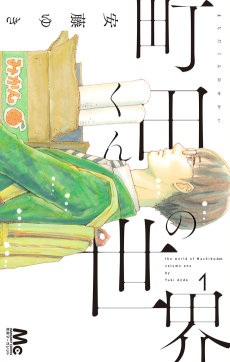 MANGA ComedyMachida-kun no Sekai
MANGA ComedyMachida-kun no Sekai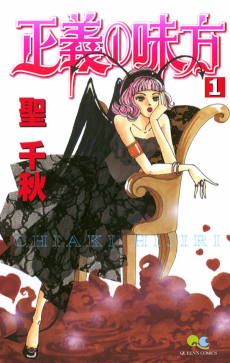 MANGA ComedySeigi no Mikata
MANGA ComedySeigi no Mikata
SCORE
- (4/5)
MORE INFO
Ended inMay 22, 2019
Favorited by 669 Users




